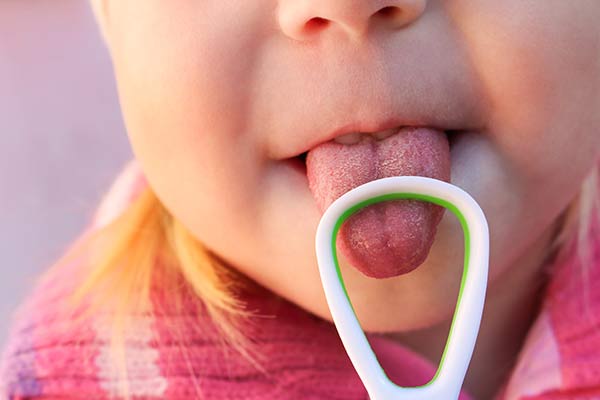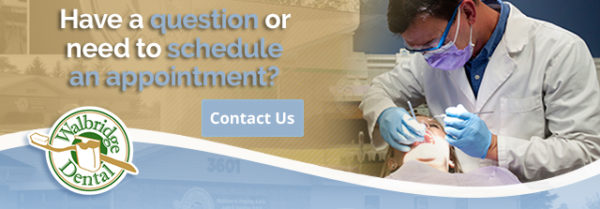
Your mouth is full of bacteria. You brush your teeth to keep those surfaces as clean as possible. Flossing helps remove bacteria from the gaps in-between. But what about your tongue bacteria? There’s plenty there too!
Removing tongue bacteria is critical, especially when you start showing signs of illness from them! Read on to learn the symptoms associated with high volumes of tongue bacteria and how to effectively remove it.
Signs of Extreme Tongue Bacteria
Eating, drinking and sometimes even just breathing can all introduce bacteria to your mouth. Because of this, you will always have bacteria in your mouth no matter how much you focus on cleaning it. However, when it reaches a certain point, that bacteria can turn into illnesses or infections. Here are some of the most likely signs that your tongue bacteria have reached a critical stage:
White Tongue
If your tongue develops white patches, it’s usually a sign that something is wrong with your oral hygiene. White patches are a collection of bacteria and dead cells that get stuck on enlarged papillae.
While these patches can form from something as simple as dry mouth, they’re often associated with problems like excessive tongue bacteria, dehydration or even fevers. Patches of white on your tongue can also be indicators of illnesses, such as oral thrush to even cancer.
Sores
Like a tissue in your mouth, your tongue is susceptible to canker sores. These small white or yellow sores can sometimes appear without a direct cause, but excessive bacteria can instigate or irritate their growth. While they’re often painful, tongue sores can appear and disappear without note.
However, the bigger risk of a tongue sore with tongue bacteria is infection. Sores create a way for bacteria to get under the surface, where they can thrive and cause more serious damage.
Brown “Hairy” Tongue
Proteins in your tongue can “grow” from small bumps into larger, hair-like strands. When this happens, they become a common place for everything from food particles to bacteria to hide. Over a short time, these strands can become darkened into a brown or even black shade that looks like hair on your tongue.
In many cases, scraping your tongue is all that’s needed to clear away these dark deposits. It can be more difficult if you’re a smoker. However, if they don’t disappear after cleaning, you may need to visit a doctor to be tested for more serious viruses.
Bad Breath
Incidentally, one of the most common causes for bad breath is bacteria on your tongue. Despite this, people go to great lengths overbrushing their teeth or using mouthwash to try and solve the problem.
As you speak or breathe, air leaving your lungs passes over your tongue. If your tongue bacteria have grown out of control, they contribute to the bad odor you and those around you may notice.
Tongue bacteria that cause bad breath won’t often come with other noticeable symptoms like those mentioned above. If you notice that your breath isn’t so fresh, consider cleaning your tongue!
How to Remove Tongue Bacteria
If you’re worried that you may have excessive tongue bacteria, don’t be! Removing bacteria buildup from your tongue is easy – which makes it so surprising that most people don’t incorporate it into their daily hygiene habits.
All you need is to scrape or brush your tongue just like you would your teeth. A small amount of friction is all it takes to remove the majority of bacteria that reside on your tongue. Remember, like your teeth, your tongue has multiple surfaces. Don’t forget to clean the sides or underneath.
Should You Use a Tongue Scraper or a Toothbrush?
It’s always good to use the right tool for the job. Therefore, a tongue scraper is likely the best way for the average person to clean their tongue. These tools are designed specifically to scrape bacteria from the large surface of your tongue quickly and easily.
However, toothbrushes can serve the same purpose. In fact, while a tongue scraper may make it easier to clean your tongue, they aren’t necessarily more effective. Abrasion from the brush will make quick work of any bacteria lodged in the grooves of your tongue.
Ultimately, the choice is up to you! A tongue scraper is generally going to clean your tongue faster, but also adds another tool you’ll have to buy, maintain and occasionally replace. However, using your toothbrush to clean your tongue can increase the rate which it needs replaced too.
Try both and see what works best for you! The most important thing is to find a tool and a method you can stick with for the long run to prevent further issues. A clean tongue is necessary for a health mouth, and a healthy mouth will keep cavities and bad odors at bay.
Do You Have Dental Health Questions? Schedule an Appointment!
We can help make sure you and your family are brushing correctly. If you’re concerned or just looking for information, the professionals at Walbridge Dental provide complete family dental care to families in the Millbury community. Contact us online to set up an appointment now or call us at 419-836-1033.
Connect on Social Media!

